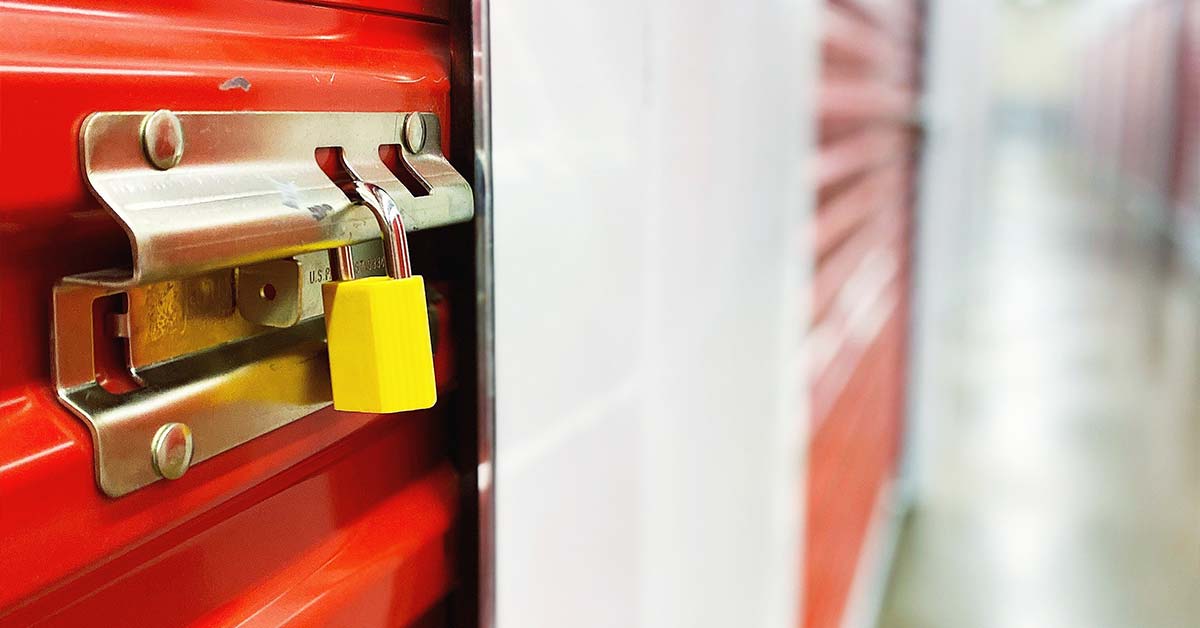Need a place to store your belongings? Consider renting a self storage unit from a storage facility near you. At U-Lock Mini Storage, we offer storage units to those who seek temporary or long-term storage.
Renting a storage unit helps you gain the additional space you need to store items that you do not want laying around your home, or office documents and supplies.
To help you organize your storage unit, we have prepared five tips you can use. Enjoy!
1. Create a List of All Your Inventory
When placing a lot of items in storage, it is difficult (if not impossible!) to remember each and every item you need to store. While large furniture pieces, such as a bed or sofa, are easy to remember, smaller items such as artwork, pictures, electronics, and clothes, are oftentimes forgotten. To keep track of everything you need to store, create and maintain a list of all items you want to store. You can create a Microsoft Excel spreadsheet to keep track of the items and their descriptions. Creating such a list will help you organize your storage inventory much more easily.
2. Disassemble Furniture and Store Items Upright
To maximize space and organize your belongings more efficiently, disassemble large furniture items prior to placing them in the storage unit. This includes taking apart headboards, bed frames and mattresses, as well as disassembling table legs – among other items. We recommend storing individual items in a vertical position towards the back of a storage unit (except for mattresses, which should be stored laying flat). By storing furniture such as headboards upright and on the side, you will save on floor space for other items. Tip: if your dining table doesn’t come apart, try using it as extra shelving inside the storage unit for stacked boxes.
4. Store Large, Heavy Items on the Bottom and Towards the Back
As you begin packing items inside the storage unit, start with large, heavy belongings such as furniture and heavy boxes. Place them towards the back of the storage unit at the bottom. Remember that unless you want to crush smaller and/or lighter boxes, heavy items should always be stored at the bottom of the storage unit. Doing this creates a stable base for lighter items.
5. Place Items You Need More Frequently Towards the Front
Chances are, there are some items you plan on using more frequently than others. For instance, that extra bed for which you no longer have room, likely won’t see the light of day for a while, whereas your baby’s pack ‘n play will. Other items that you are sure to need more often include seasonal clothing such as heavy coats, boots, hats, flip-flops, and swimsuits. While you will not need these items every day, you will be making trips to the storage unit to retrieve them at least once a year. These types of belongings should be placed towards the front of your storage unit in well-labeled boxes or bins. Placing them in an easy-to-reach spot near the door will save you the trouble of having to dig through mountains of boxes every time you go to the storage unit.
6. Remember to Go Vertical
When packing and organizing your storage unit, remember to go vertical with your belongings. Boxes should be stacked high and furniture should be stored upright. If you happen to be storing bookcases or anything with shelving, take advantage of the extra storage space. To make room for smaller boxes and belongings, consider adding wire shelving or hanging shelves to the storage unit as well. If the storage unit is particularly high, you may want to consider keeping a foldable ladder or step stool inside the unit with your belongings.
7. Write Labels
We cannot emphasize enough how important it is to label every box and bin inside a storage unit. You may think you will remember where you put those family photo albums but, trust us, you won’t – especially if they have been sitting in storage for a long period of time. Label every box clearly with either a permanent marker or printed sticky labels. Make sure the labeled part of the box is facing the front of the storage unit, so you can easily see it upon entering.

